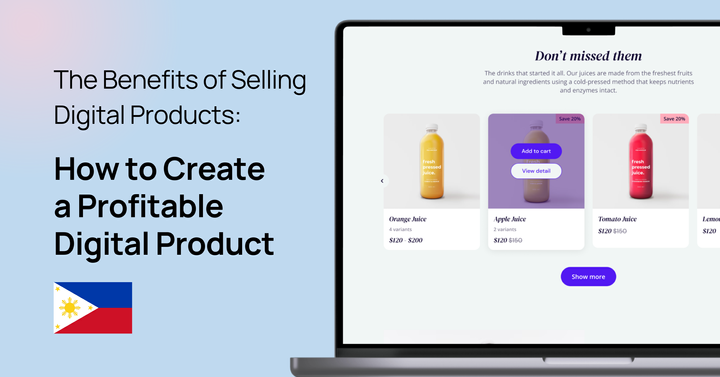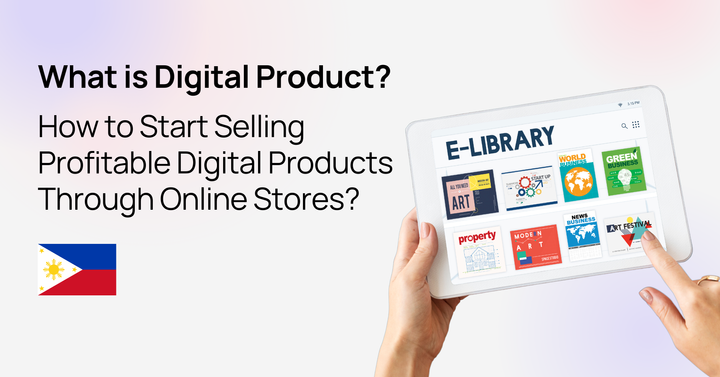The Top 13 Free Website Builders in Malaysia: Shopify vs Wix, Cococart, WooCommerce, HitPay, and More
As e-commerce continues to boom, having a digital storefront becomes increasingly essential. And this is where free website builders step in, offering an invaluable lifeline to SMEs.


According to a recent report, Malaysia’s internet penetration rate is about 97% of the population at the beginning of 2023. While it was once seen as an advantage or a bonus to have a website, today, it's an essential part of any business strategy.
Whether you’re expanding a thriving physical business online or dipping into e-commerce for the first time, a website builder can help you skip the hassle of building a website from scratch.
But there are dozens of popular free website builders, like Shopify, Cococart or PrestaShop out there, so which one is right for you? We’ve created this guide to help you find the right website builder in Malaysia for your new online store. Read on!
Why Free Website Builders Are Gaining Traction in Malaysia
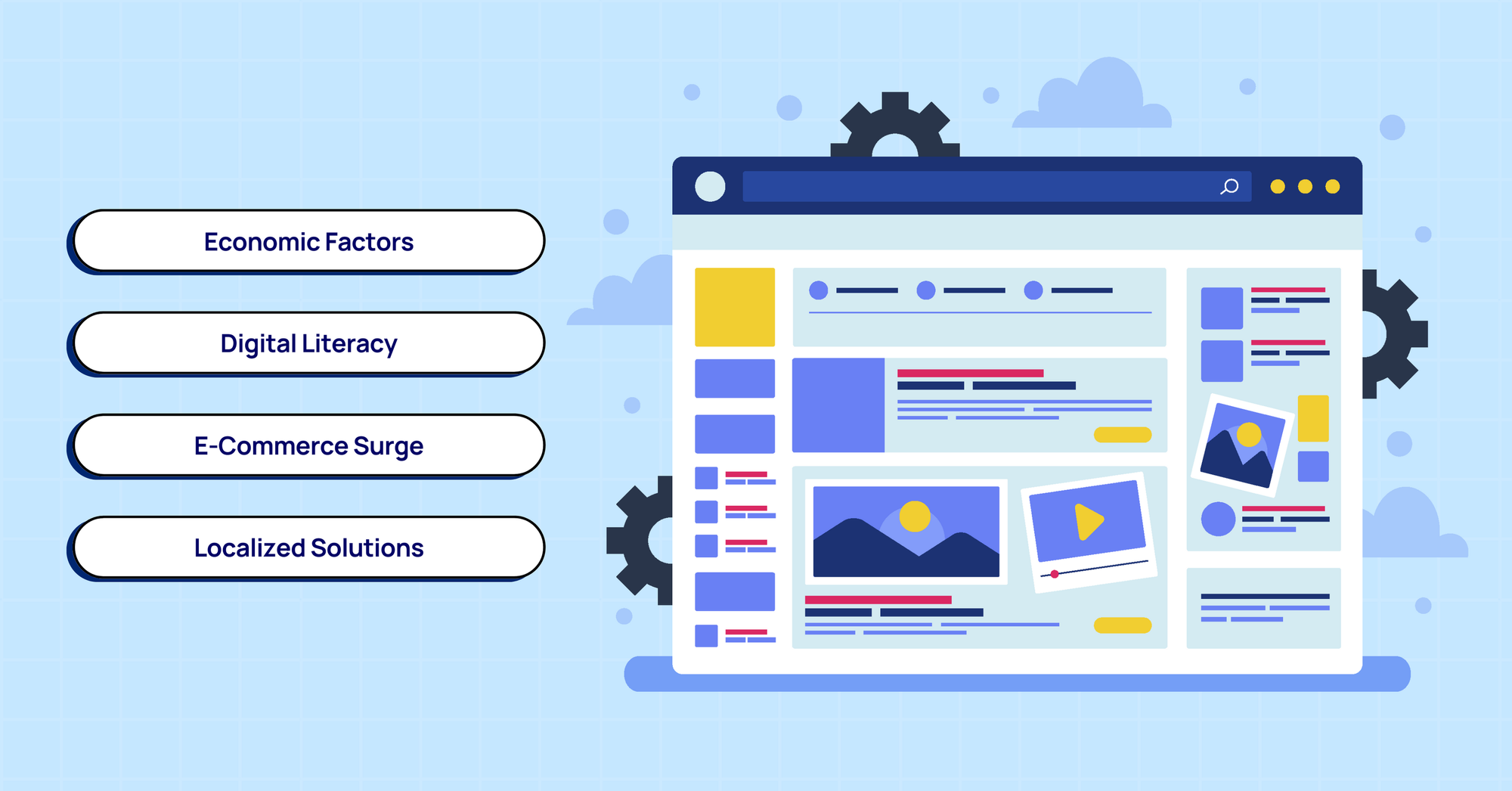
The digital evolution in Malaysia isn't just a reflection of global trends. The country's unique economic and social fabric plays a critical role in shaping its online ecosystem. Here's why free website builders are capturing the Malaysian market:
- Economic Factors: With the global economic uncertainties, especially in the wake of the pandemic, businesses are keen on cutting costs. Free website builders offer an economically viable option to establish an online presence without heavy investments.
- Digital Literacy: Despite the tech boom, not everyone is equipped with coding or web development skills. Free website builders bridge this gap with their user-friendly interfaces, ensuring anyone can create a website.
- E-Commerce Surge: As per reports from TN Global, Malaysia has witnessed a substantial surge in e-commerce activities. Small businesses want a piece of this pie without hefty investments. These platforms provide them with the tools to do so.
- Localized Solutions: Many free website builders are tailoring their solutions to cater to the specific needs of the Malaysian market, integrating local payment gateways, offering regional design aesthetics, and providing local language support.
13 best website builders for small businesses in Malaysia: An Overview
- HitPay Online Store: Best free website builder with an online store to quickly sell physical and digital products for busy small business owners
- Shopify: Well-known e-commerce website builder for people without coding or design experience
- Wix: Beginner-friendly website builder with multi-language support
- Cococart: All-in-one website builder with the sleek look of Typeform
- WooCommerce: Open-source, customisable website builder for people with WordPress expertise
- Ecwid: A simple e-commerce solution for existing websites
- Magento/Adobe E-commerce: For established e-commerce businesses managing multiple brands
- Shopline: For business owners who rely on live-streaming on social media and need a done-for-you website with minimal customisation
- PrestaShop: Open-source free website builder for people who want full website customisation
- Shopmatic: For small businesses who sell on multiple marketplaces like Shopee, Qoo10 and Lazada
- Opencart: Free open-source e-commerce website builder for people who want complete control over every aspect of their website
- EasyStore: Drag and drop website builder with native integrations with local marketplaces in Malaysia
- Yezza: A dedicated WhatsApp store for service-based businesses and mobile-first sellers
The Top 13 Free Website Builders in Malaysia
Website builders offer a blend of simplicity, flexibility, and efficiency. They are especially vital for startups and SMEs in Malaysia who may not have extensive technical know-how or resources. Let's explore the twelve standout platforms in Malaysia:
1) HitPay Online Store

The HitPay Online Store is the best free online website builder if you need a simple website builder without coding or design skills. Sell digital downloads like e-books and online courses or physical products with HitPay.
Pros:
- Free to use with optional add-on features like a link-in-bio page, custom domain support and more
- Offer unlimited physical and digital products for sale
- User-friendly drag-and-drop interface to build and customise your own online store
- Supports 100+ payment methods including FPX payments, DuitNow and GrabPay
- Free business tools including accounting integrations and invoicing tools
- Competitive discounts on transaction fees across HitPay markets
- Shipping management and inventory management features with local and international delivery options to sell and manage physical products
Cons:
- Online store only available in English
Pricing: Free to use. Optional add-ons start from US $4.99/month (RM 24)
2) Shopify

Powering 10% of all e-commerce stores worldwide, Shopify’s website builder makes it easy to sell online. Shopify’s Theme Store makes it easy to find a design for your store, while its App Library includes over 8,000 third-party apps to customise your store. However, basic plans start from USD $25/month (RM 118)
Pros:
- Subscription includes website templates, payment processor, marketing tools and hosting
- Robust app store for a variety of business needs, including order management, product sourcing and customised store design
- Extensive Shopify resources and support
Cons:
- No free plan, short 3-day free trial
- Third party apps may include additional subscription fees
Pricing: From USD $25/month (RM 118)
3) Wix

Pros:
- Multi-lingual support for 180+ languages, including Malay, Tagalog, Mandarin Chinese and Bahasa Indonesia
- Wix AppMarket includes many third-party integrations to customise your store
Cons:
- Limited free plan
- E-commerce features locked behind US $20/month (RM 94) plan
Pricing: From US$10/month (RM 47)
4) Cococart
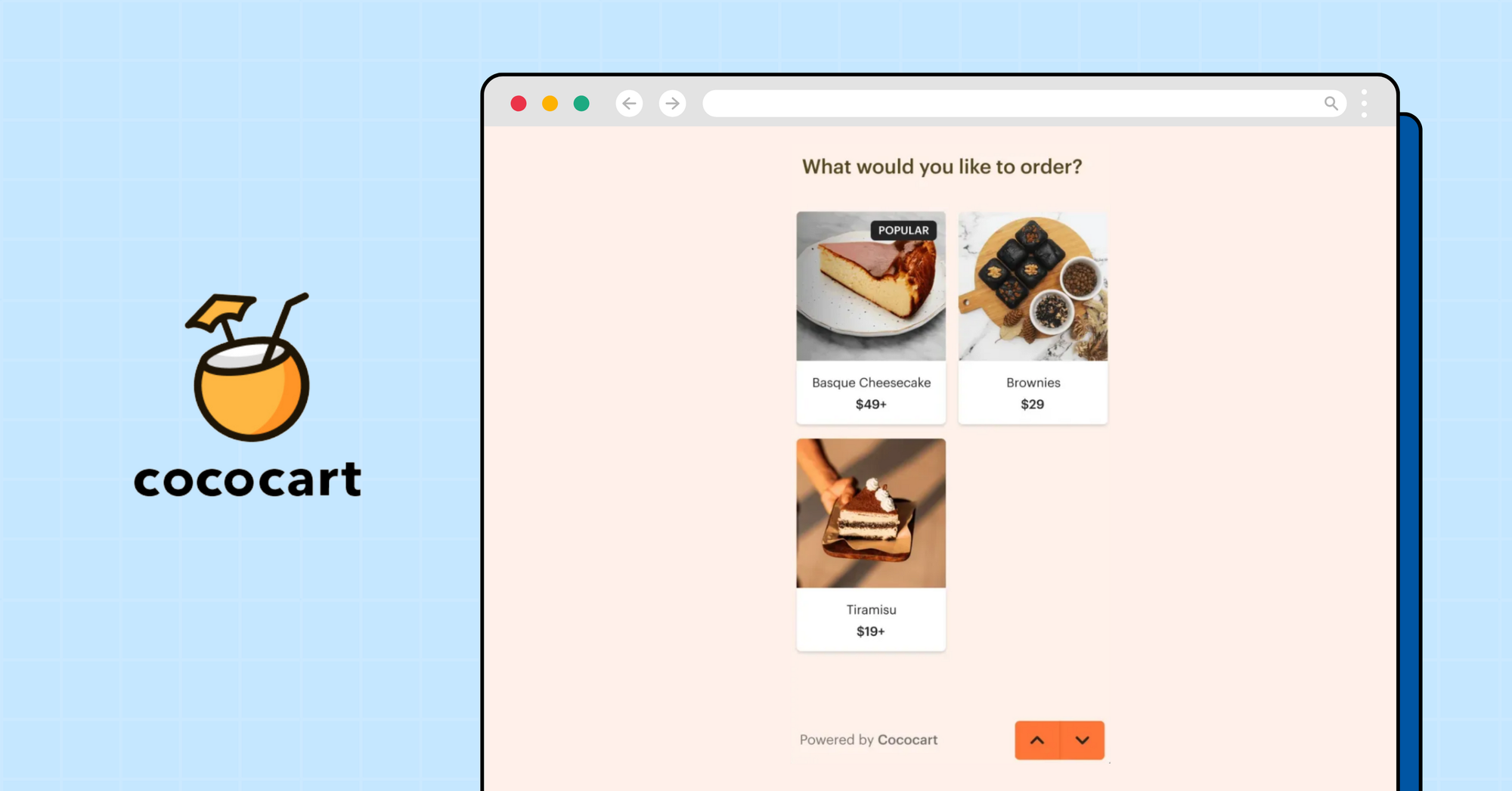
Cococart’s simple interface makes creating an online store as simple as building a Typeform or Google Form. It’s ideal for local businesses selling perishable products or who need to include delivery and pickup options in their order details.
Pros:
- Simple to use
- Includes user-friendly features like booking cut-off dates, delivery partners, payment processing, email marketing, and a POS system
Cons:
- Features locked behind subscription tiers
- Limited design templates in the free version.
- Less advanced than international counterparts.
Pricing: From US$ 9/month (RM 42)
5) WooCommerce
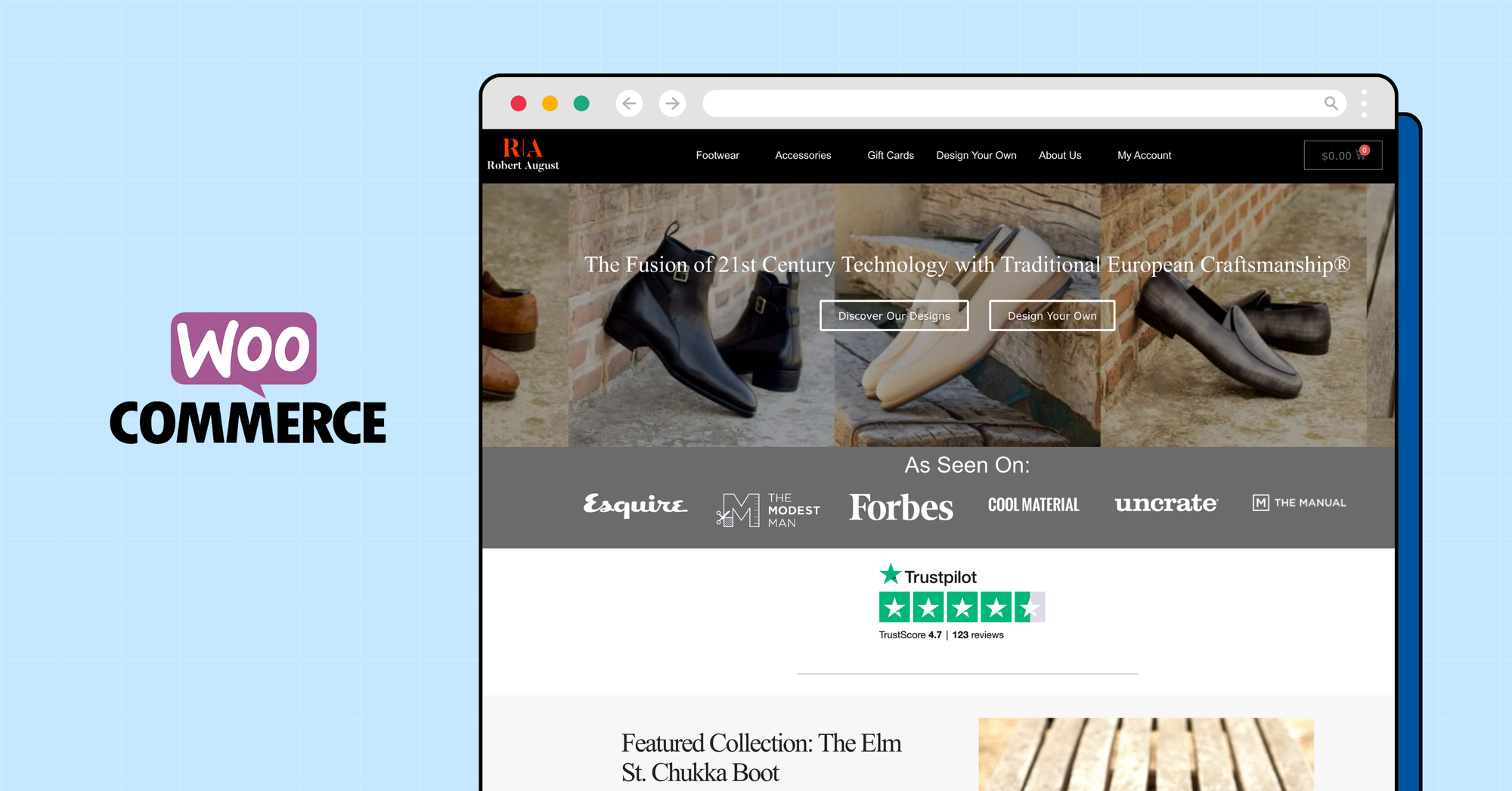
WooCommerce is not just a website builder but an open-source e-commerce plugin for WordPress. WooCommerce offers you the freedom to build an online store with WordPress if you have the technical support and time. WooCommerce itself is free, but every aspect of building a website will be up to you - from hosting, domain registration, design, and integrations.
For a more guided solution, the all-in-one WooCommerce plan Woo Express will help you build an online store in WordPress.
Pros:
- Highly customizable
- Perfect WordPress integration
- Extensive plugin availability
Cons:
- Requires WordPress expertise and time to set up
- Cost of add-ons and features can quickly add up
- Steeper learning curve for beginners
Pricing: Woo Express subscriptions start at US$ 25/month (RM 118)
6) Ecwid
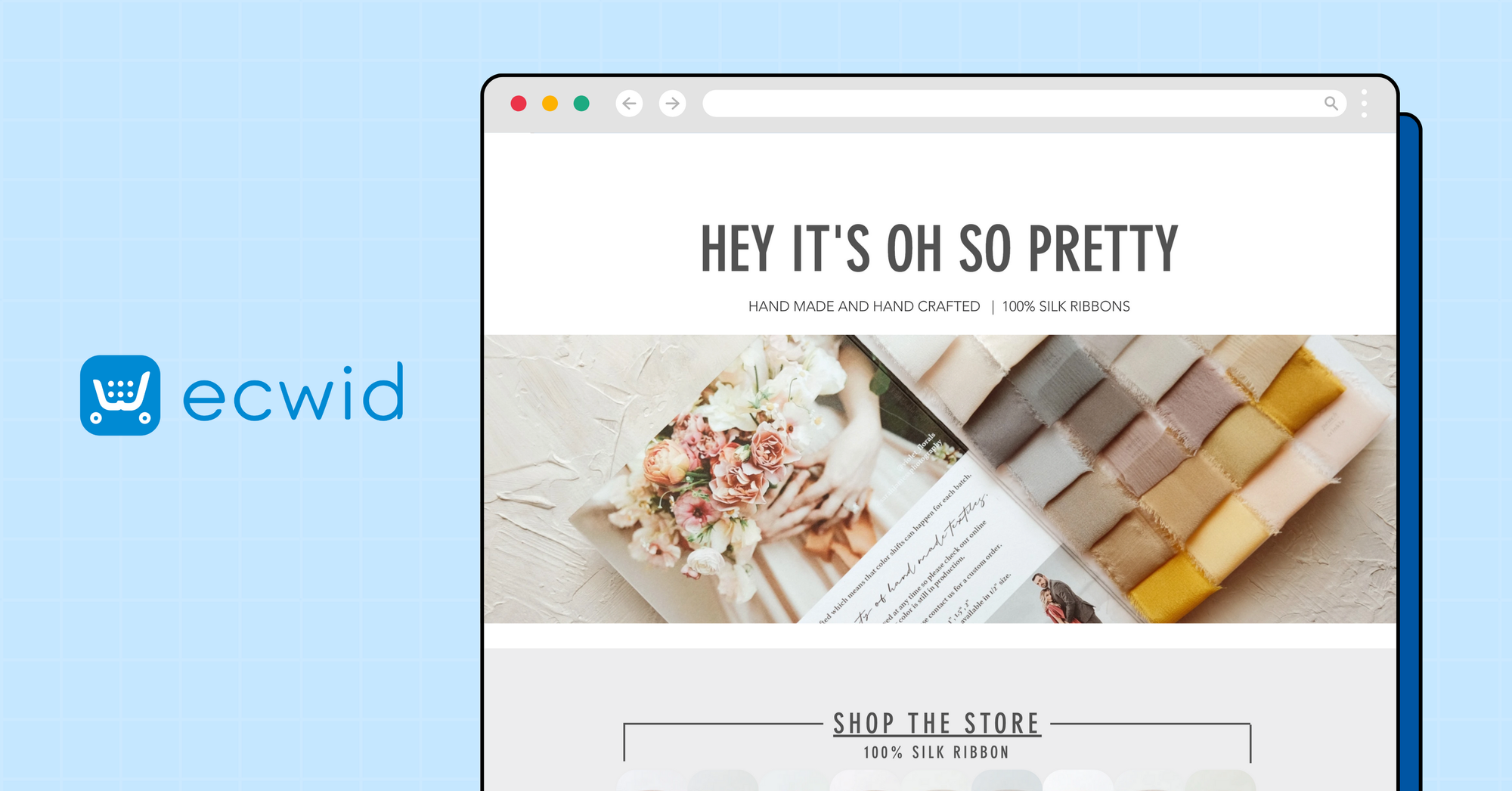
Ecwid stands out as a free website builder that can integrate seamlessly with your existing website, blog, or social network. Its adaptability and mobile responsiveness make it a handy tool for businesses expanding their online presence. While they have a free plan, you’ll have to upgrade to access many essential features for online sellers.
Pros:
- Integrates with existing platforms
- Mobile responsive designs
- Offers POS integrations
- Ecwid doesn’t charge additional transaction fees (but you’ll still pay the transaction fee charged by the payment processor like Stripe)
Cons:
- Free plan limited to 5 physical products
- Essential features like accounting integrations, selling digital goods and discount coupons only available on paid plan
Pricing: From US $14.08/month (RM 66)
7) EasyStore
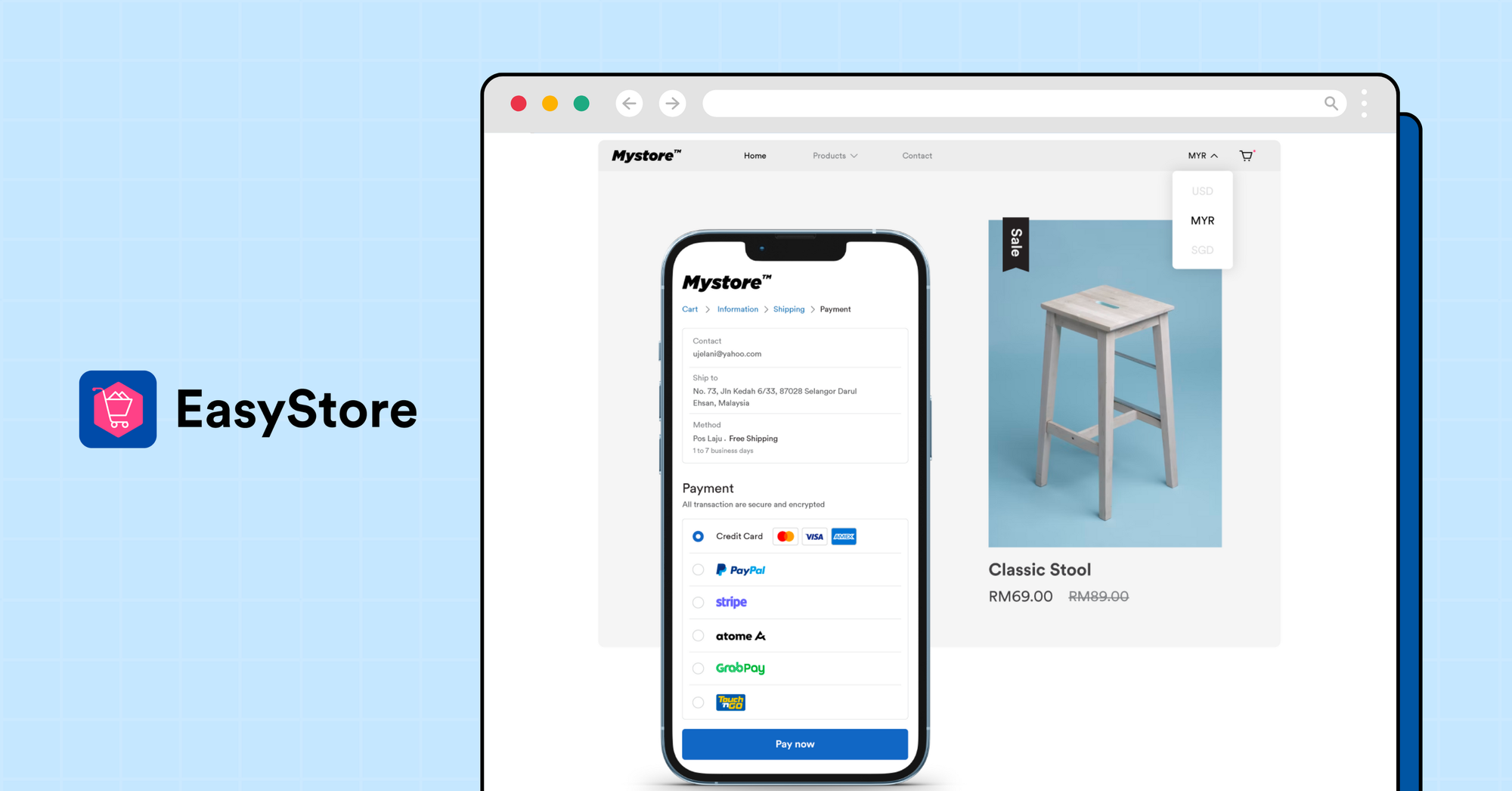
EasyStore's free website builder makes it easy to start an online store, but you’ll have to upgrade to a paid subscription to unlock more sales channels and essential e-commerce features.
Pros:
- No platform transaction fees
- Supports 20+ sales channels like marketplaces, WhatsApp, Telegram, WeChat and Line
Cons:
- Multi-location support only available on Growth plan
- E-commerce features only available on subscription plan.
Pricing: From RM 199/month
8) Magento (Adobe Commerce)
Magento (also known as Adobe Commerce) offers a sophisticated feature set including multiple store management, multi-currency support and advanced pricing rules. You’ll need knowledge of Magento to take advantage of its features, making Adobe Commerce more suited to established businesses.
Pros:
- Flexible and scalable e-commerce solution
Cons:
- Needs specialised technical knowledge in Magento to set up and maintain.
- Pricing plans aren't openly disclosed

9) Shopline
Shopline’s drag-and-drop site builder makes it easy for creators to sell on social media posts and livestreams, making this a strong platform for small business owners experienced in digital marketing.
Pros:
- Integrates with local and regional marketplaces like Line, Lazada and Shopee
- Multiple language support
- Supports FPX payment in Malaysia
Cons:
- Requires a subscription fee and a 2% transaction fee
Pricing: From US $29/month (RM 136)
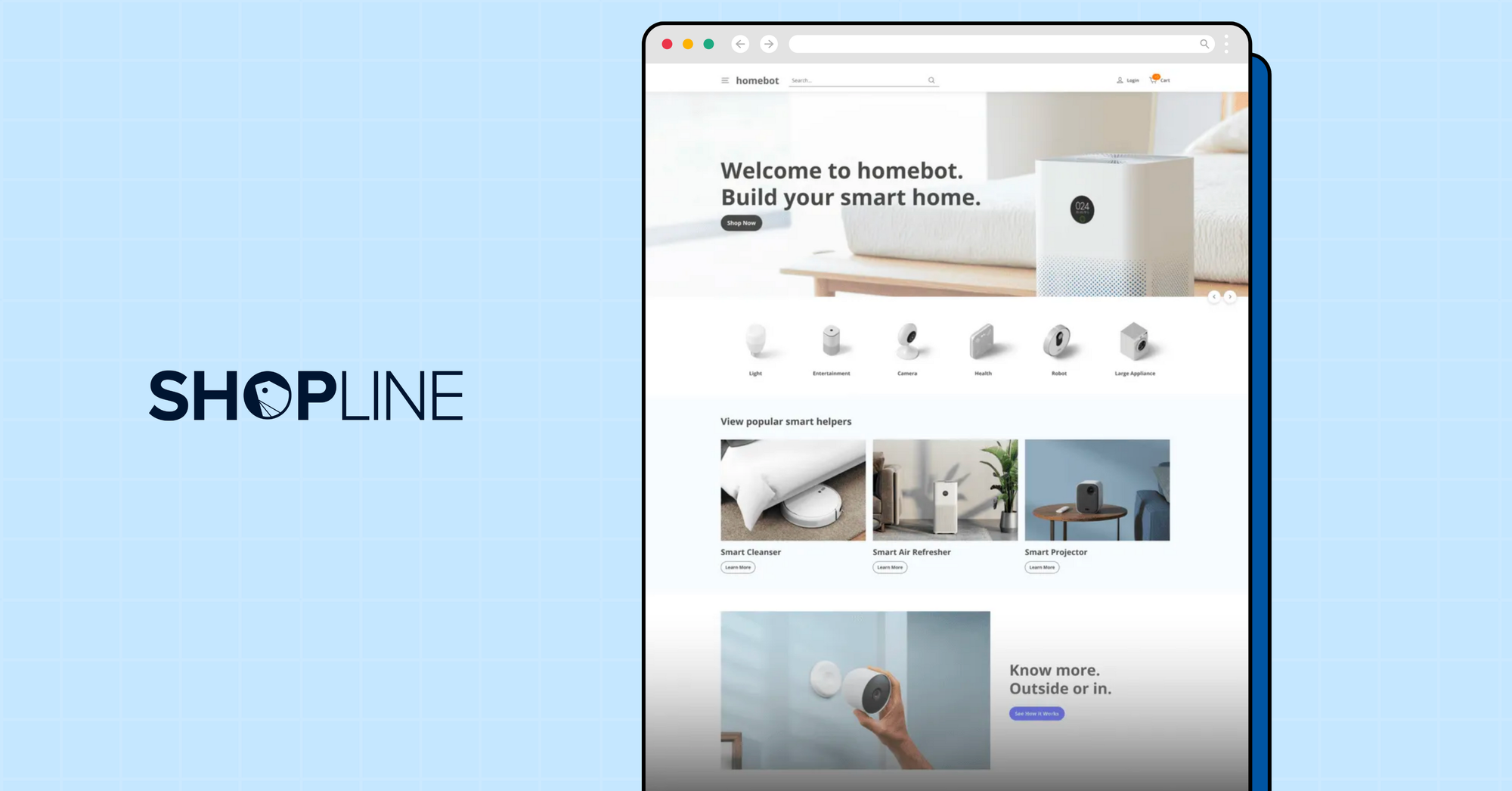
10) PrestaShop
Like WooCommerce, PrestaShop is an open-source website builder, which suits people with technical skills who want complete control over their website.
Pros:
- Free to use
- Customisable with over 2,500 website themes and 4,000 add-on modules
Cons:
- Requires coding and website-building skills to fully customise
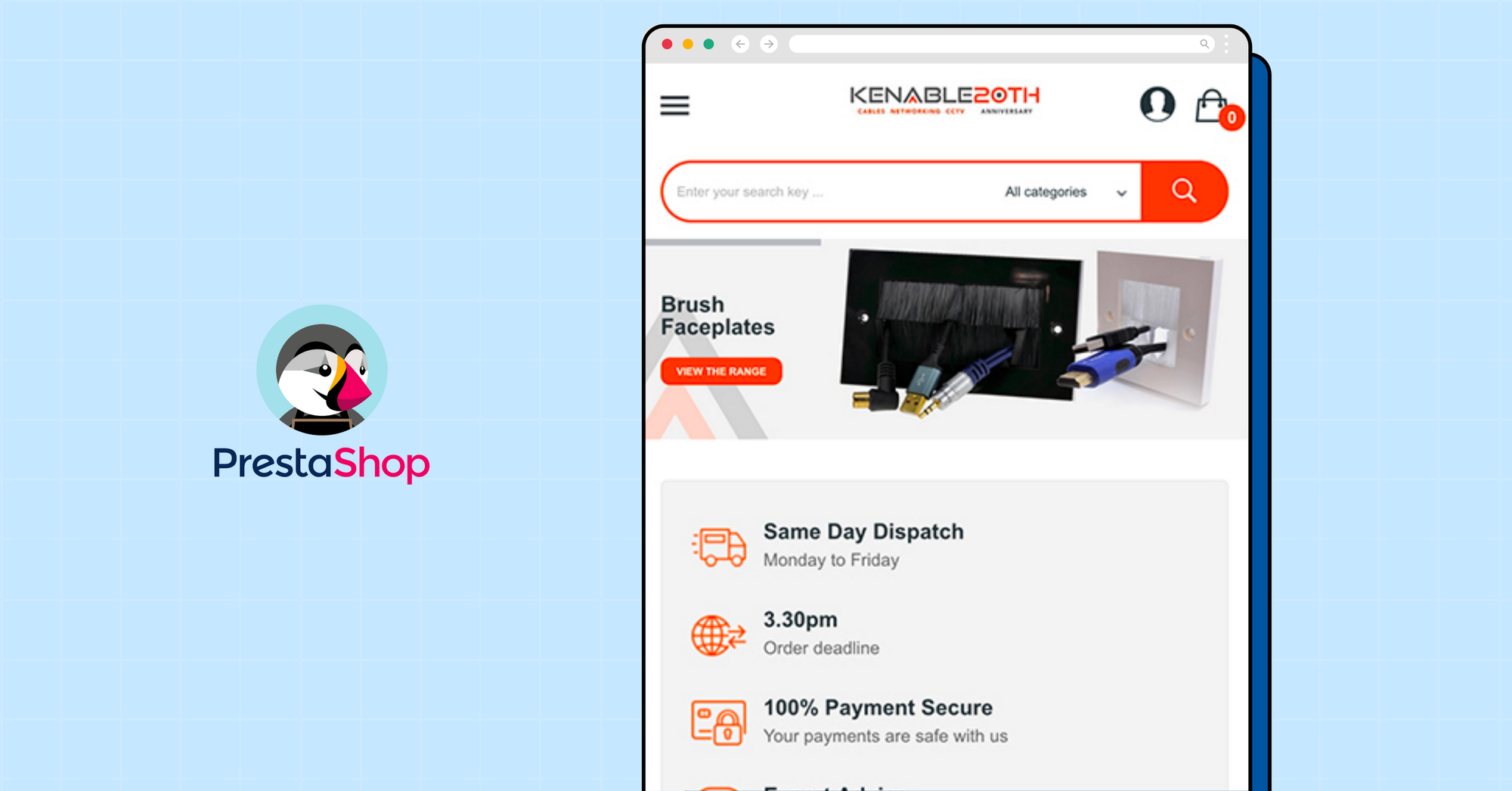
11) Shopmatic
Shopmatic’s all-in-one online store integrates with Lazada, Shopee and Amazon, making it easy to sell across multiple channels under one dashboard.
Pros:
- Offers pay-per-transaction pricing and subscription-based pricing options
- All features available across all pricing plans
Cons:
- Shopmatic’s transaction pricing is free to use but has a high 3.5% transaction fee
Pricing: From RM 240/month
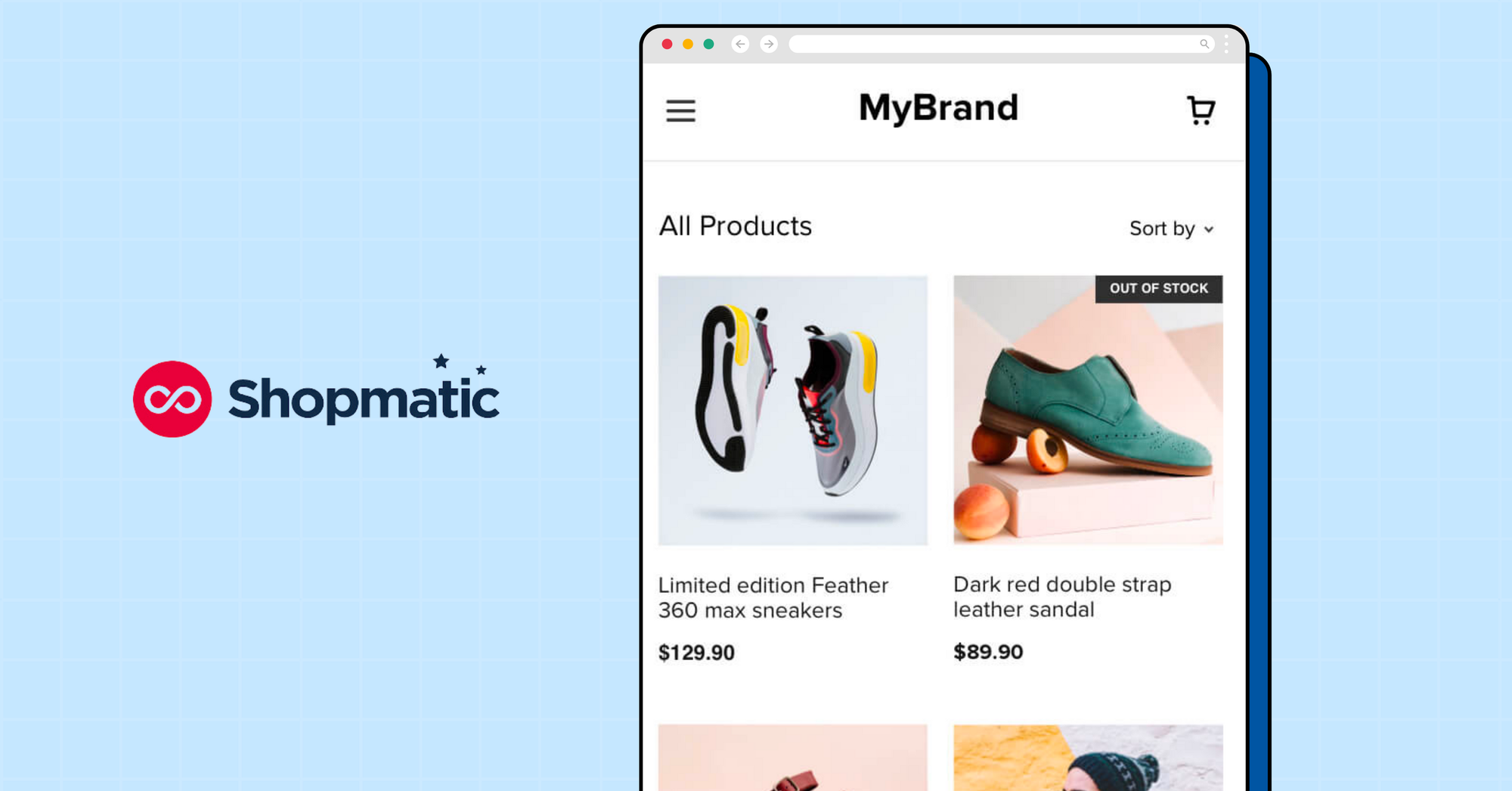
12) Opencart
Opencart’s open-source website builder and diverse range of downloadable extensions allows people with the skill set to customise their store to their liking.
Pros:
- No monthly fees
- Over 13,000 extensions available to add additional features
Cons:
- Does not include site hosting, domain registration and security features
- Costs of extensions and individual components can quickly add up
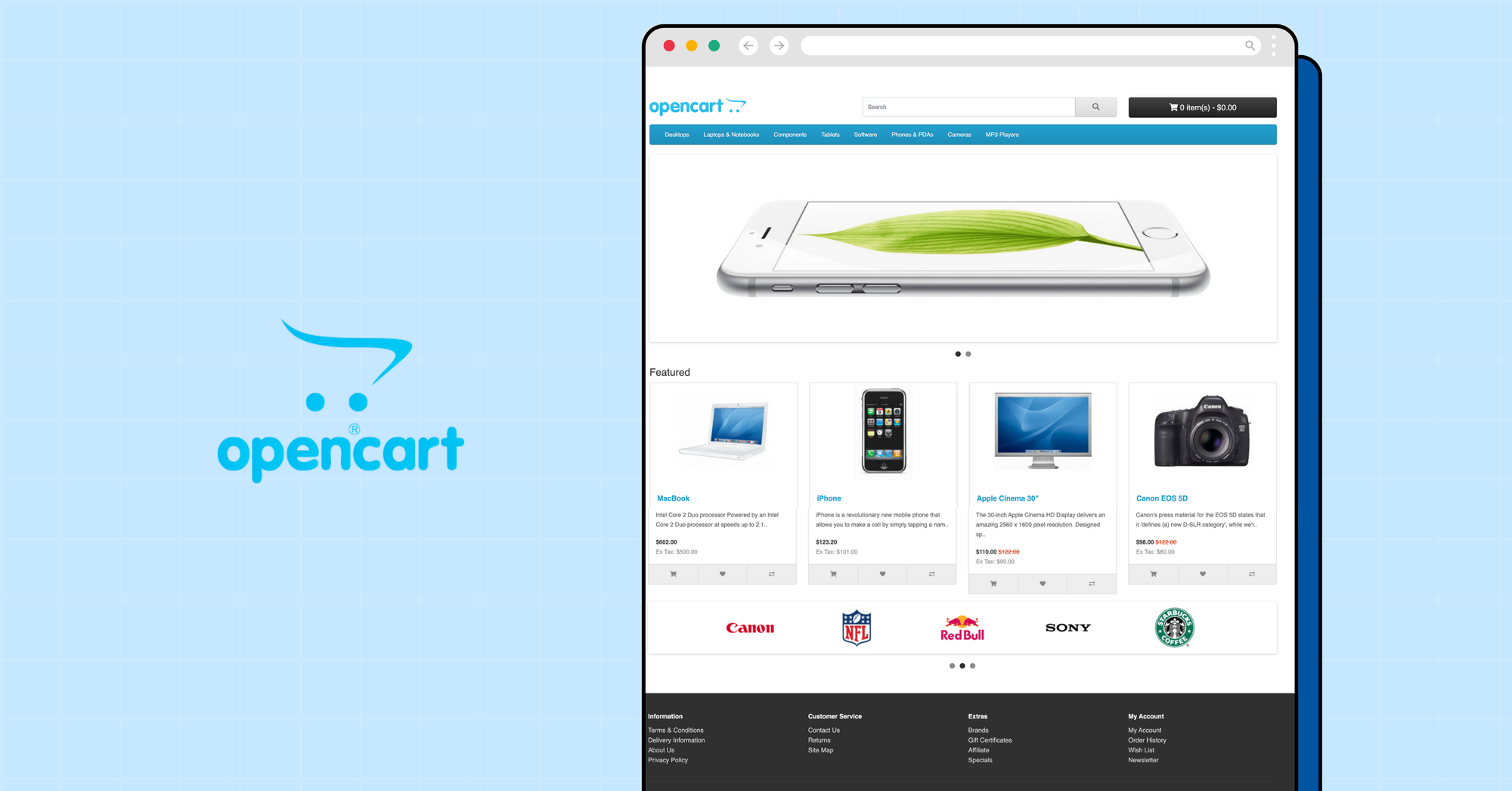
13) Yezza
WhatsApp is Malaysia’s most-used social media platform in 2023, and Yezza’s mobile-first website builder makes it easy for local businesses to create a simple storefront for WhatsApp in minutes.
Pros:
- Easy to set up
- Mobile-focused
Cons:
- Features like sales pages and e-commerce integrations only available on the Growth plan
- Only available on WhatsApp
Pricing: From RM 50/month
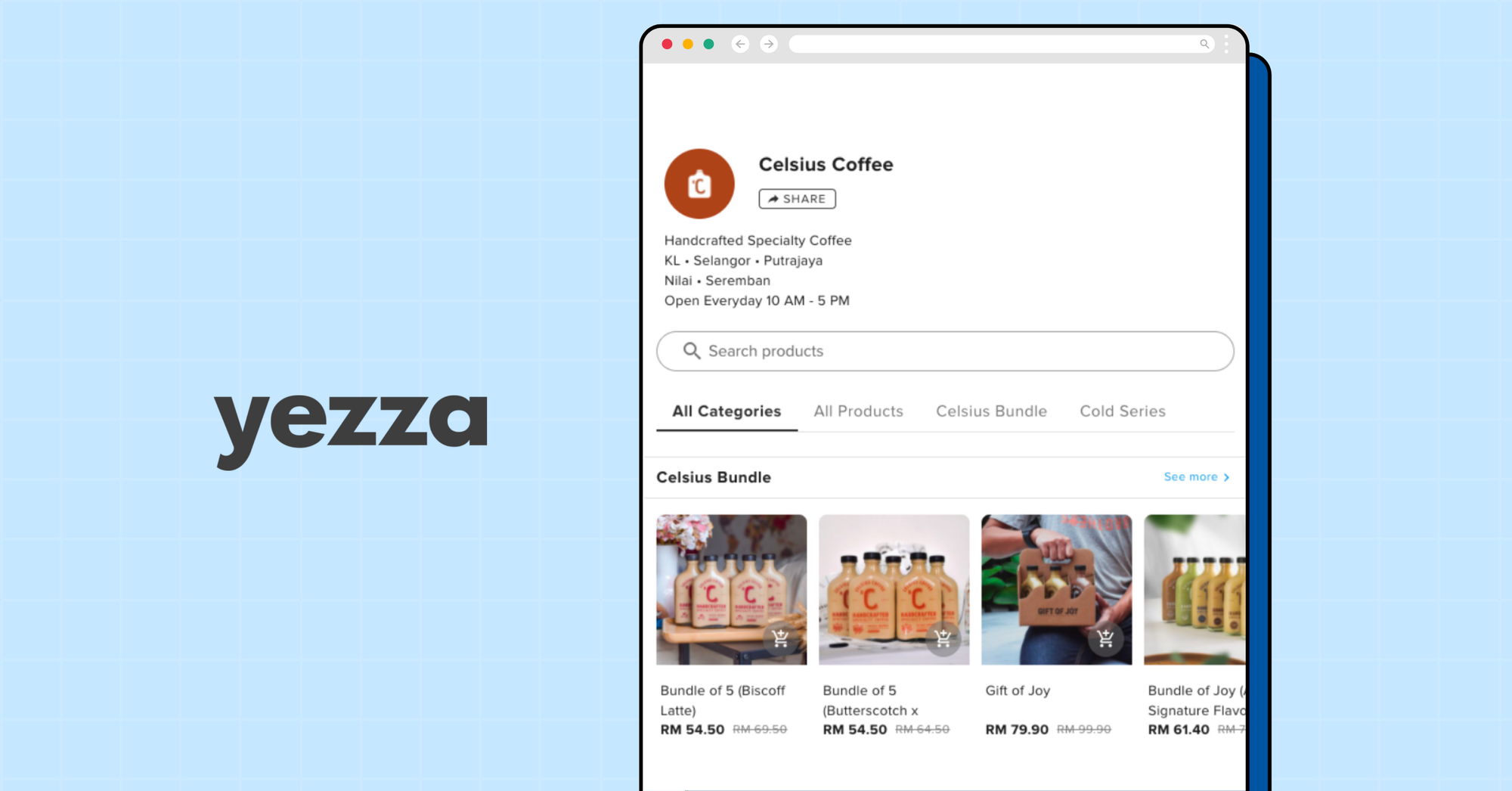
How to choose a website builder for your small business
Seen all your possible options but wondering which one is right for your business? First, let’s break down the decision by asking yourself a few questions.
Cost
How much money are you willing to spend on your business website?
Costs for website builders fall into three categories:
- Ongoing subscription fees:
Most website builders need a subscription fee to unlock most of their features, with some advanced features or limits locked behind higher pricing tiers. Check that the features you need are included in your chosen subscription plan.
- Transaction fees:
The percentage of your revenue taken by your website builder when you successfully make a transaction. Some platforms charge a transaction fee on top on payment processing fees from Stripe.
- Other features like domain hosting, inventory or user management, integrations,, or custom website themes:
Some e-commerce website builders include these in their subscriptions, while others treat them as add-on charges.
Time and website-building skills
Creating a website with your new website builder and managing every aspect of your website takes time. Consider hiring a partner or developer to help you create your website if you’re short on time. Otherwise, a free website builder like the HitPay Online Store makes this process easy - just add your products and start selling with minimal fuss.
Singapore-based merchant Twist The Willow Twig uses the HitPay Online Store to sell online quickly.
Website customisation options
Do you want a simple solution to get your store running quickly, or do you prefer complete control over your website’s presentation?
If you’ve got the technical expertise and time, opt for an open-source solution like WooCommerce or PrestaShop where you’ve got full control over every aspect of your website. Alternatively, website builders like Shopify offer design templates and a drag-and-drop interface to design your desired digital storefront without coding.
For a more straightforward solution, HitPay’s Online Store uses a pre-designed template with customisation options to help you build your online storefront and start selling in minutes.
Caption: The HitPay Online Store allows you to style the colours on your pre-designed template according to your brand colours
Supported payment methods and sales channels
If you’re selling through a website, you need an easy way to accept customer payments. For example, the HitPay Online Store supports 100+ payment methods, including popular payment methods in Malaysia like FPX, DuitNow, and GrabPay to let your customers pay the way they prefer - making them more likely to go through with a sale
Also, think about what sales channels and methods attract your customers Website builders like Shopmatic offer native integrations with Facebook and Instagram livestreams and marketplaces to make managing your business easy.
Integrations with the rest of your business
Besides selling, small business owners must manage every aspect of their business, including accounting, marketing, invoicing and inventory management — taking valuable time out of your day.
Website builders like HitPay include free business tools to help you minimise time spent on administrative tasks so you can focus 100% on your business.
Which website builder should I pick for my small business?
Here are a few suggestions to help you choose a website builder for your specific needs.
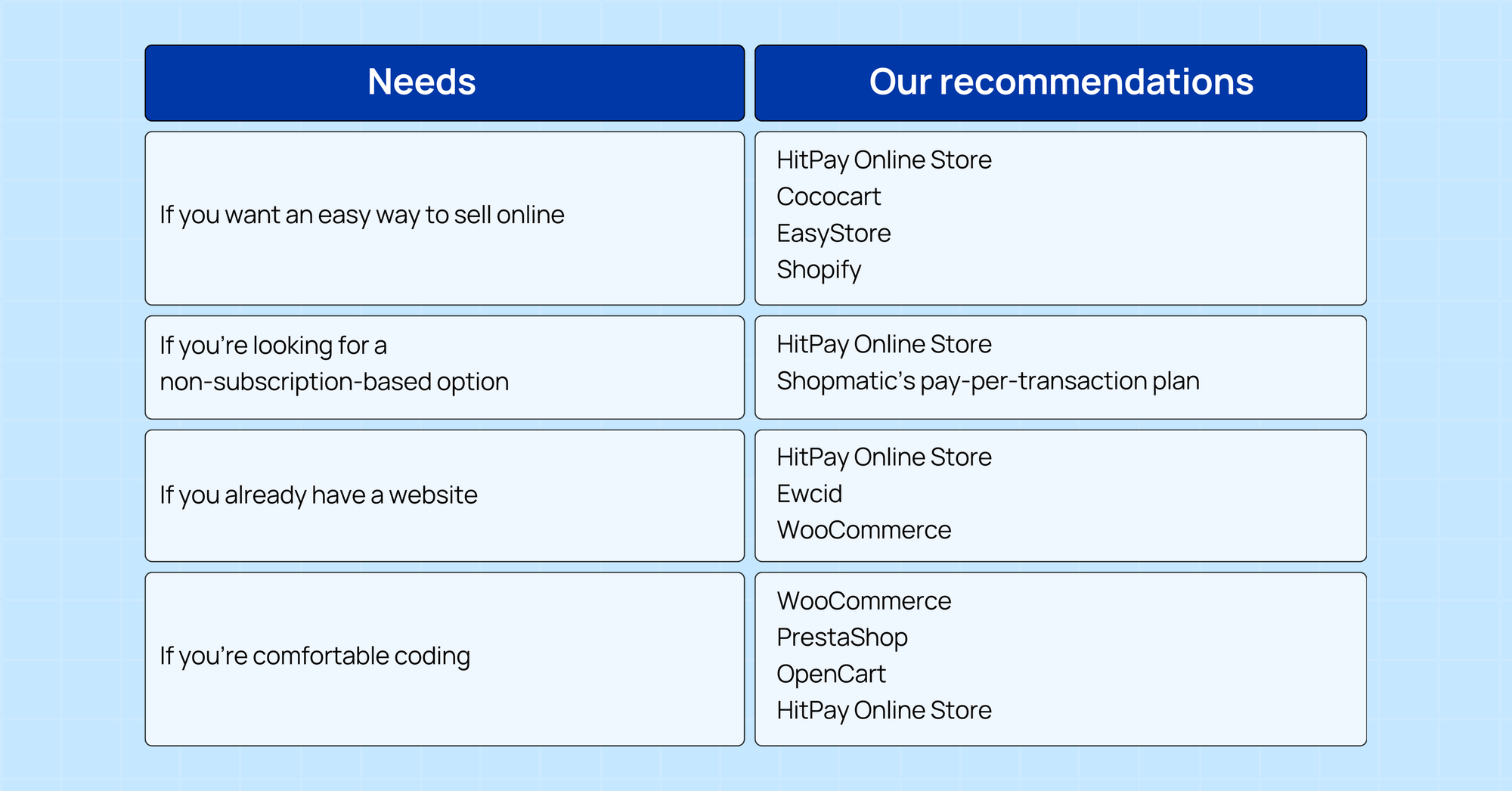
If you’ve just started online and need an all-in-one website builder without a subscription fee, HitPay Malaysia is the easiest way to start selling.
Ready to create a website and sell online in minutes with HitPay’s free online store? Click here to sign up for a free HitPay Malaysia account.
Try your Free Website Builder in Malaysia
While there are many website builders and payment gateways available, HitPay’s combined offering presents an alluring package for businesses in Malaysia. By consolidating two crucial components of e-commerce – website creation and payment processing – it simplifies the journey for entrepreneurs, allowing them to sell their products and services.
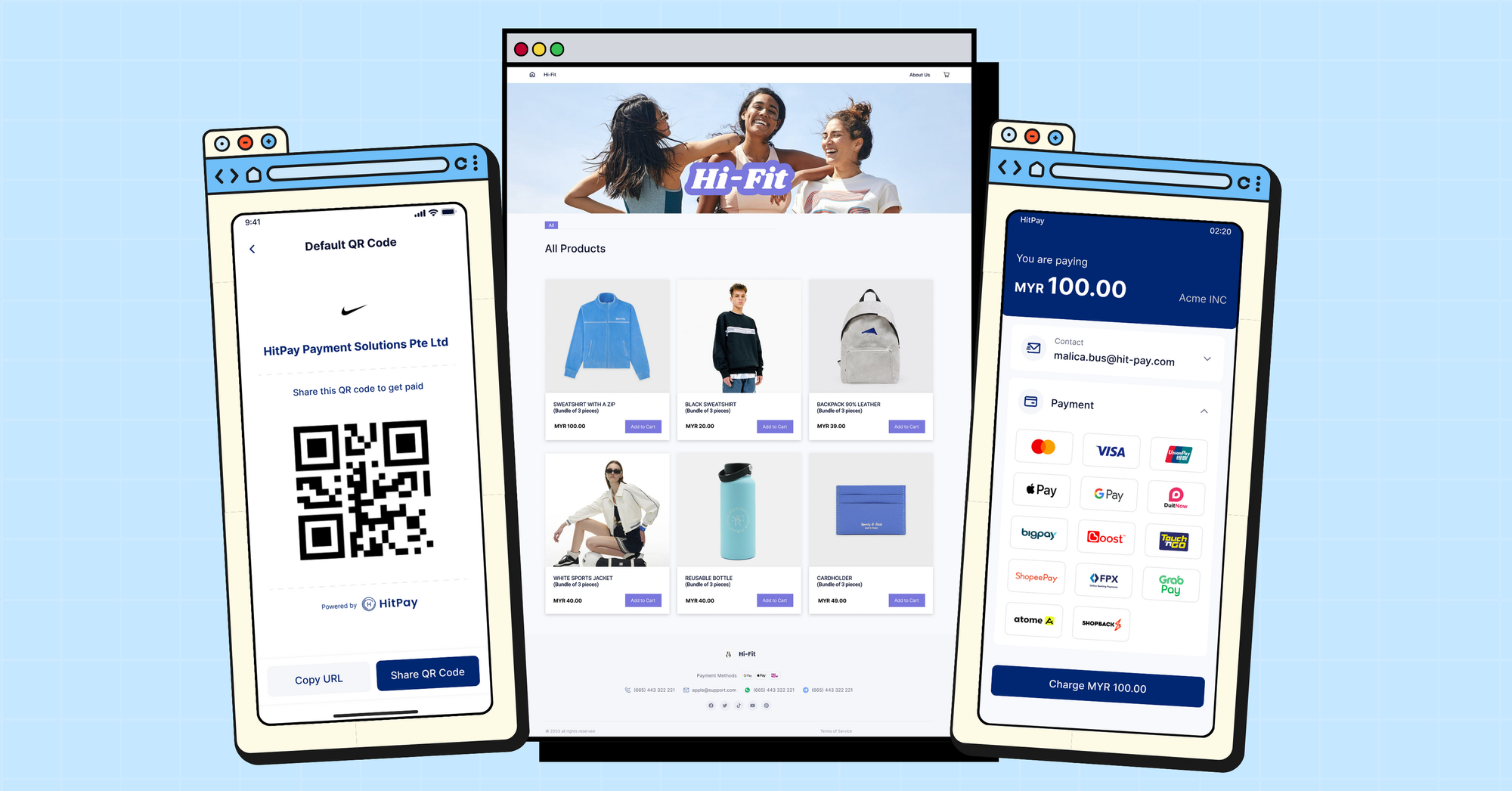
Try HitPay now for free or contact the team for a free demo.
About HitPay
HitPay is a one-stop commerce platform that aims to empower SMEs with no code, full-stack payment gateway solutions. Thousands of merchants have grown with HitPay's products, helping them receive in-person and online contactless payments with ease. Join our growing merchant community today!


